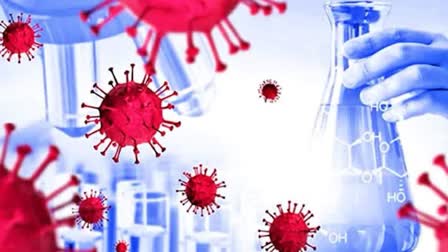New Delhi: The World Antimicrobial Awareness Week is observed annually between November 18-24 to raise public awareness about the issue. Antimicrobial resistance (AMR) is a growing threat to public health that needs urgent attention.
History And Significance
In May 2015, the 68th World Health Assembly supported a global action plan to address the growing problem of antibiotic and other antimicrobial resistance after European governments adopted a strategic action plan on antibiotic resistance in 2011. One of the primary goals of these strategies is to raise antimicrobial resistance awareness and understanding through effective communication, education, and training. The Tripartite Executive Committee decided to set all future World Antimicrobial Awareness Week (WAAW) between November 18 and 24. It’s a global campaign to raise awareness and understanding of AMR and promote best practices among stakeholders to reduce the emergence and spread of drug-resistant infections.
The AMR is a pressing global health and socioeconomic crisis. It has significant impacts on human and animal health, food production, and the environment. Drug-resistant pathogens pose a threat to everyone. So, the week emphasises the need for mass awareness on the issue.
What Is AMR
Antimicrobial resistance occurs when bacteria, viruses, fungi, and parasites no longer respond to antimicrobial agents. As a result of drug resistance, antibiotics and other antimicrobial agents become ineffective, and infections become difficult or impossible to treat, increasing the risk of disease spread, severe illness, and death.
Theme For 2024
According to the World Health Organisation (WHO), the theme for the World AMR Awareness Week (WAAW) 2024 is “Educate. Advocate. Act now.” This theme was chosen based on feedback from an online survey among stakeholders from the human, animal, plant, and environmental health sectors, which collected nearly 200 responses globally.
Cause For AMR And Its Remedy
Misuse and overuse of antibiotics, along with ineffective infection prevention and control, speed up the development of antibiotic-resistant bacteria. Antimicrobial resistance can’t be prevented as microbes adapt to their environment. However, actions like consulting a physician to discuss symptoms, following the directions of the physician, avoiding medication sharing, and avoiding unnecessary antibiotic use, among others, can help in limiting AMR.
United Nations General Assembly On AMR
The global leaders have approved a political declaration at the 79th United Nations General Assembly (UNGA) High-Level Meeting on Antimicrobial Resistance (AMR) held in September, committing to a clear set of targets and actions, including reducing the estimated 4.95 million human deaths associated with bacterial antimicrobial resistance (AMR) annually by 10% by 2030.
The declaration also calls for sustainable national financing and $100 million in catalytic funding to help achieve a target of at least 60% of countries having funded national action plans on AMR by 2030. This goal is to be reached through, for example, diversifying funding sources and securing more contributors to the Antimicrobial Resistance Multi-Partner Trust Fund.
The declaration sets a more ambitious target that at least 70% of antibiotics used for human health globally should belong to the WHO Access group of antibiotics with relatively minimal side effects and lower potential to cause AMR.
AMR Situation In India
The Indian Council of Medical Research’s (ICMR) Antimicrobial Resistance Research and Surveillance Network, in its annual report published in September, revealed an alarming trend of increasing antibiotic resistance and declining susceptibility of common pathogenic bacteria. The report is based on the analysis of 99,492 culture-positive isolates from various specimens, including blood, urine, superficial infections, the lower respiratory tract (LRT), deep infections, sterile sites, and faeces. Twenty-one regional centres from across India, both public and private, contributed to the surveillance.
The data indicated a concerning rise in resistance to Critically Important Antimicrobials (CIA) and Highest Priority Critically Important Antimicrobials (HPCIA), which are essential for treating serious human infections. Resistance rates among key bacterial pathogens, such as Escherichia coli, Klebsiella pneumoniae, and Staphylococcus aureus, have increased significantly.
National Programme On AMR Containment
Antimicrobial resistance is a growing public health problem. Resistance has emerged even to newer and more potent antimicrobial agents like carbapenems. The rapid spread of multi-drug-resistant bacteria and the lack of new antibiotics to treat infections caused by these organisms pose a rapidly increasing threat to human health, which urgently needs to be tackled if we are to contain the problem and prevent untreatable illness from becoming a reality. To tackle the issue of antimicrobial resistance (AMR), the Government of India launched a “National Programme on AMR Containment” during the 12th five-year plan (2012-2017), which is being coordinated by the NCDC. The program has been expanded in a phased manner to include 50 laboratories in 33 states/UTs (as of March 2024).
Commonwealth Declaration On Antimicrobial Resistance
The recently held 27th biennial conference of the Commonwealth Medical Association (CMA) in Chennai recognised that antimicrobial resistance has escalated into a critical global health threat, undermining the effectiveness of life-saving treatments and driving rising rates of morbidity and mortality worldwide. Designated as a “silent pandemic” by the World Health Organisation (WHO), AMR urgently calls for united international action.
Calling for urgent attention, the CMA decided to appoint one AMR coordinator from each national medical association within 30 days to liaise with the CMA on Commonwealth-wide AMR activities. The biennial conference also decided to form a Standing Committee for Antimicrobial Resistance under each National Medical Association within 3 months, ensuring junior doctor representation. It has also decided to recognise AMR and Infection Prevention and Control (IPC) as primary focus areas and showcase the Commonwealth Alliance of Medical Professionals on Antimicrobial Resistance (CAMP AMR) and the AMR Standing Committee on the National Medical Association’s website within 3 months.
Read More
- Lancet Warns On Taking Antibiotics: 39 Million People Could Die By 2050
- IMA Forms National Alliance On Antimicrobial Resistance
